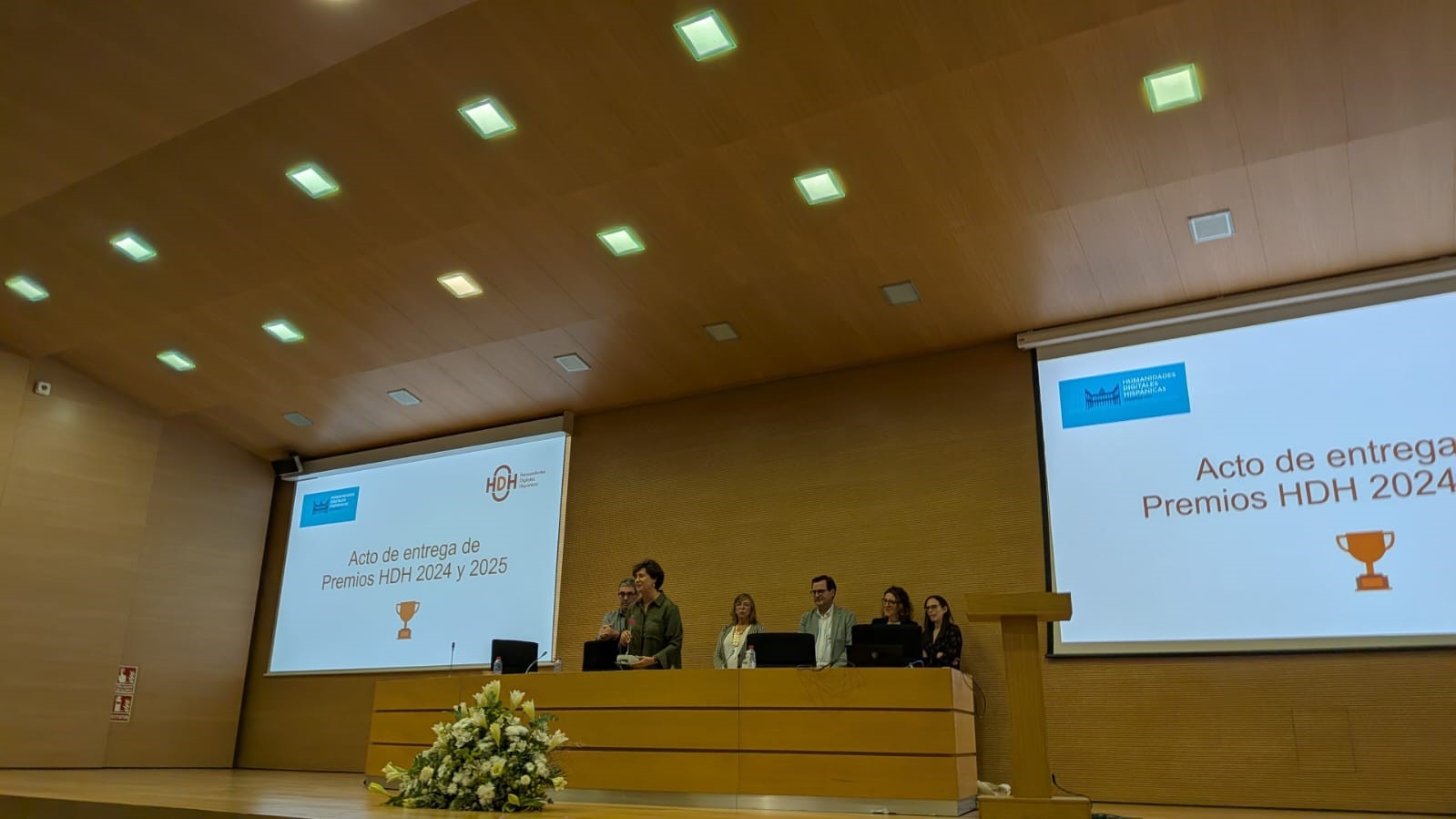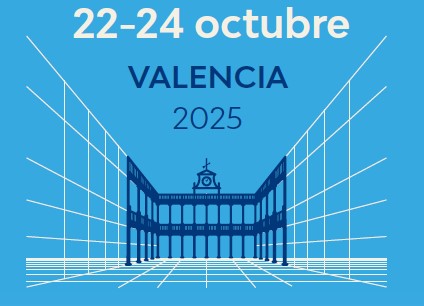
Closing Ceremony “HDH 2024–2025.” Teresa Ferrer Valls, Josefa Badía Herrera, María Estellés Arguedas, Jorge Sebastián Lozano, Fátima Díez Platas, and César González-Pérez at the Assembly Hall of the Faculty of Philology, Translation and Communication of the University of Valencia.
…
From October 22 to 24, 2025, the 7th International Congress of the Hispanic Digital Humanities Society was successfully held at the University of Valencia, jointly organized by the Departments of Spanish Philology, English and German Philology, and Art History. This gathering brought together leading scholars and specialists in Hispanic Digital Humanities, creating a vibrant space for exchange, debate, and collaboration. The general feeling of the organizing committee was one of deep satisfaction and enthusiasm for the results achieved.
The scale of the congress and the number of attendees, speakers, and presenters was such that it took place simultaneously in two faculties: Geography and History, and Philology, Translation and Communication. As for the Department of Spanish Philology, the event counted on the support and enthusiasm of the students of the Degree in Hispanic Studies: Spanish Language and its Literatures, the Master’s Degree in Advanced Hispanic Studies: Applications and Research, and the Doctoral Program of the same name, who collaborated in the various organizational tasks required by the congress. Their involvement was immediate, showing that the entire organizing community rose to the challenge.
Essential congress roles such as social media management, room coordination, accreditation desk assistance, guidance through faculty spaces, and even some session moderations were taken on by the students, always under the direction of the departmental staff.
This active participation not only ensured the smooth running of the congress but also offered students the opportunity to attend presentations, exchange ideas with specialists, and connect directly with the academic community. In this regard, the assessment made by the Department of Spanish Philology is more than positive, as it is clear that the involvement and representation of the entire university community of Hispanic Philology results in strengthened ties, early contact with scholars and specialists, and the development of management skills and competencies that go beyond the classroom.
Thus, this congress demonstrated the vitality and proactivity of our academic community and confirmed that collaboration, enthusiasm, and scientific excellence can go hand in hand in an event of international standing.
Authors: Jessica De Matteis and Raúl Cano Cejalvo.
Images:











